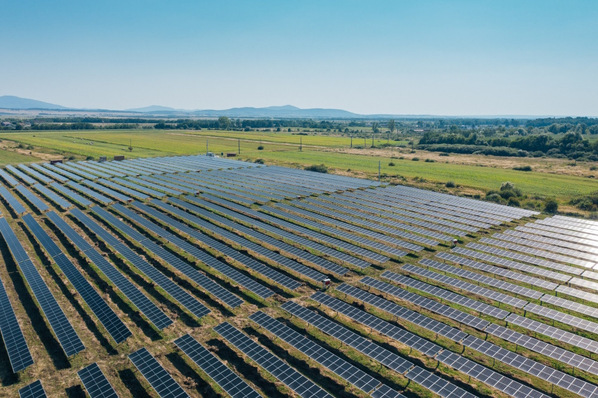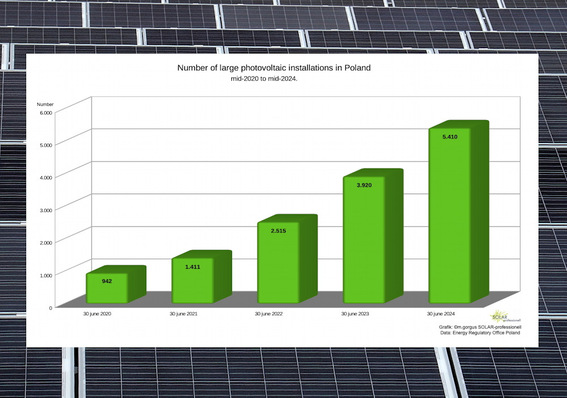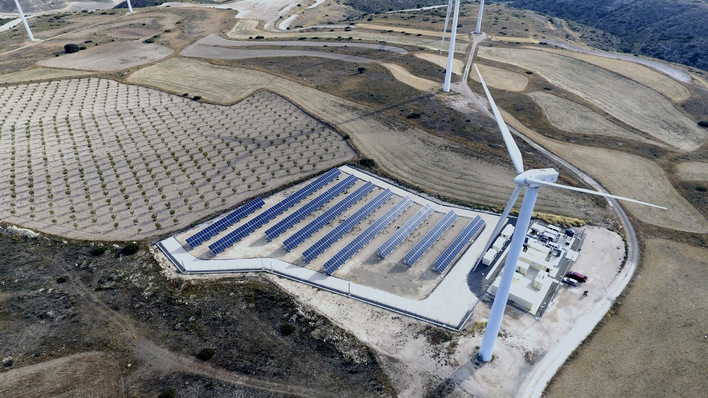According to a recent study on the potential of renewable energy in Republic of Macedonia, the country has an average of 280 days of sunshine per year due to its geographical location and climate, which is a theoretical (physical) potential and provides ideal conditions for the production of solar electricity. The annual average of daily radiation varies between 3.4 KWh/m2 in the northern part of the country and 4.2 KWh/m2 in the southwestern part.
The climatic characteristics of this region, including high intensity and duration of solar radiation, temperature, and humidity, provide further favorable conditions for the successful development of solar energy. Its continental climate with hot and dry summers makes Republic of Macedonia a country with a higher potential for utilization of solar energy than average European countries. Due to this special geographical location, these natural resources are to be increasingly used for environmentally friendly electricity generation in the future. Advantage: Energy costs are being reduced and the environment is protected at the same time.
Benefits and advantages
Given its high solar energy potential, Macedonia welcomes all investments in the renewable energy sector. The government therefore invites companies to plan, build and operate large and small photovoltaic plants. According to the World Bank’s Doing Business 2020 report, Republic of Macedonia is among the 20 most attractive countries in the world, out of a total of 190 countries, to do business, encourage new investment and thereby increase employment. North Macedonia is also the leading country in the Balkans when it comes to setting up businesses, opening up new opportunities for smaller and local companies. No wonder Republic of Macedonia has the highest cumulative index in the region in the “Doing Business” ranking and stands out positively especially in the areas of starting a business, paying taxes and dealing with building permits.
Macedonia’s Prime Minister stressed in a public address that 3.1 billion euros will be invested in the energy sector by 2027, of which the majority will be invested in renewable energy sources and the rest in the gas sector. The presentation of a seven-year plan worth a total of 8.2 billion euros mainly outlined new wind and solar energy projects as well as future investment plans in waste separation and management, sewage and waterworks and wastewater treatment. According to the Energy Community Sustainable Development Report 2020, the country scored highest among the six Western Balkan countries in terms of progress in implementing energy reforms, energy efficiency, renewable energy, environmental protection, investment conditions and transparency. Based on the government’s strategic framework plan “Action 21”, investments in the energy sector are continuously pursued so that the country remains a leader in the region.
Investment policy in the field of renewable energies
Republic of Macedonia, as an Energy Community Contracting Party and EU candidate country, is willing to follow the European Union energy policy and obliged to transpose and implement the EU energy directives and regulations. As part of the EU harmonization process, the Macedonian Parliament adopted the new Energy Law in May 2018, which harmonized the energy legislation of Macedonia with the EU Third Energy Package. To implement the provisions of the Energy Law, appropriate secondary legislation has been adopted. The purpose of the new law was to create an effective legal framework for collaboration, mutual information sharing, and coordination of the activities of the competent authorities of Republic of Macedonia with the relevant institutions of the European Union Energy Community.
Also interesting: MET Group: PV investment in Romania
This includes a coordinated crisis management, the reporting on the imposition and monitoring of compliance with public and universal service obligations, and coordinated activities related to the development of regional energy markets. Likewise, the Energy Law set the foundations for stability, competitiveness, and economic functionality of the energy sector. Because this also supported the promotion of renewable energy sources and energy efficiency, it led to an expansion of investments in the renewable energy sector in a short time.
Several procedures for the construction of photovoltaic power plants were carried out after the adoption of the Energy Act, including: i) the construction of 35 MW photovoltaic power plants on state land; ii) the construction of a 10 MW photovoltaic plant in TPP Oslomej; and iii) the construction of a photovoltaic power plant of 100 MW in the former TEC Oslomej coal mine. These investments clearly underline the country’s efforts to attract potential interested investors in this area.
Aligned Energy Law within the EU Renewable Energy Directive
Compared to the 2019 report delivered by the European Commission, the latest 2020 annual progress report on Republic of Macedonia states that the country remains “moderately prepared in this area (energy), and good progress was made, notably through the adoption of implementing legislation in relation with the third energy package.” Other highlights include recognition that Republic of Macedonia managed to align its Energy Law with the EU Renewable Energy Directive, following the adoption of several pieces of secondary legislation to implement the renewable energy rules.
Did you miss that? New 124 MW solar park in Bulgaria
Accordingly, the 2040 vision of the national Strategy is: To build a secure, efficient, environmentally friendly and competitive energy system that can support the sustainable economic growth of the country and thus ensure in the near future, that renewable energy sources account for 45% of total energy consumption.
At a time when the whole world is focused on climate-neutral environmental policies, investing in renewable energy is the right thing to do. Republic of Macedonia has a big renewable energy potential that has yet to be fully developed and receives considerable state backing. For more information contact Aleks-Aco Stoilkov: Aleks@t.mk (hcn)







